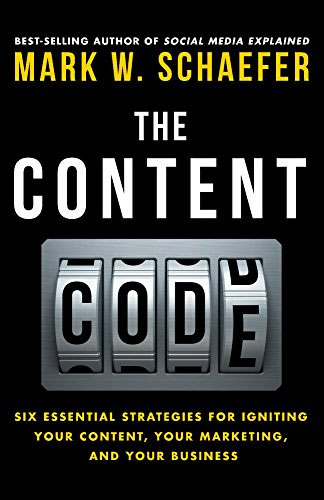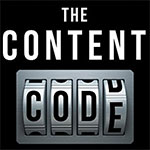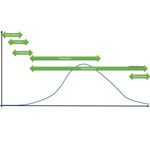Definition of content shock
Mark Schaefer used the term content shock for the first time in his article titled why content marketing is not a sustainable strategy.
Here’s how he defines the content shock:
The argument behind the content shock concept
Mark Schaefer’s argument about content shock is based on a few pillars including but not limited to the following statements:
- Content marketing is not a sustainable strategy for many businesses based on the simple economic analysis.
- In the content world, the content price is zero. Therefore, oversupply will force content producers to pay their audience to consume their content.
- Two factors impact the economics of content marketing – the amount of content available and the amount of content consumed.
- The volume of free content is increasing exponentially.
- Our ability to consume the content is finite.
- Content creators have to spend more and more on the platforms like Google and Facebook for convincing audiences to read and consume their content.
What does Schaefer suggest us to do?

About two years after publishing the article, Mark Schaefer published a book titled Content Code. Shaefer believes that he has found the solution for his self-proposed threat to content marketing practice.
If you try to summarize the book in a single word, that world will be Sharing.
Sharing is the secret key Schaefer believes that will be able to break the content marketing deadlock. Let’s read it in his own words:
Schaefer suggests six strategies for achieving the above goal (sometimes acronymized as BADASS):
- Brand Development
- Audiences and Influencers
- Distribution, Advertising, promotion and SEO
- Authority
- Shareability
- Social proof and social signals
How strong is the content shock claim?
The Content Code is a helpful and instructive book to the eyes of every fair reader. But, just if you consider it as a roadmap for achieving higher content sharing rate.
But regarding Schaefer’s argument, as he calls his claims as a purely economic view of the content economy, there is a serious flaw in his content conceptualization as a product:
Content is not a commodity. This is clear for anyone who is familiar with both content and the economy. Ignoring this basic fact will mislead us in analyzing the future of the content economy.
However, still his first claim can be considered as a valid statement: Content marketing won’t be sustainable for many businesses. Not as a result of the content shock. For the most part, because many content marketers like him may consider content as a commodity.






